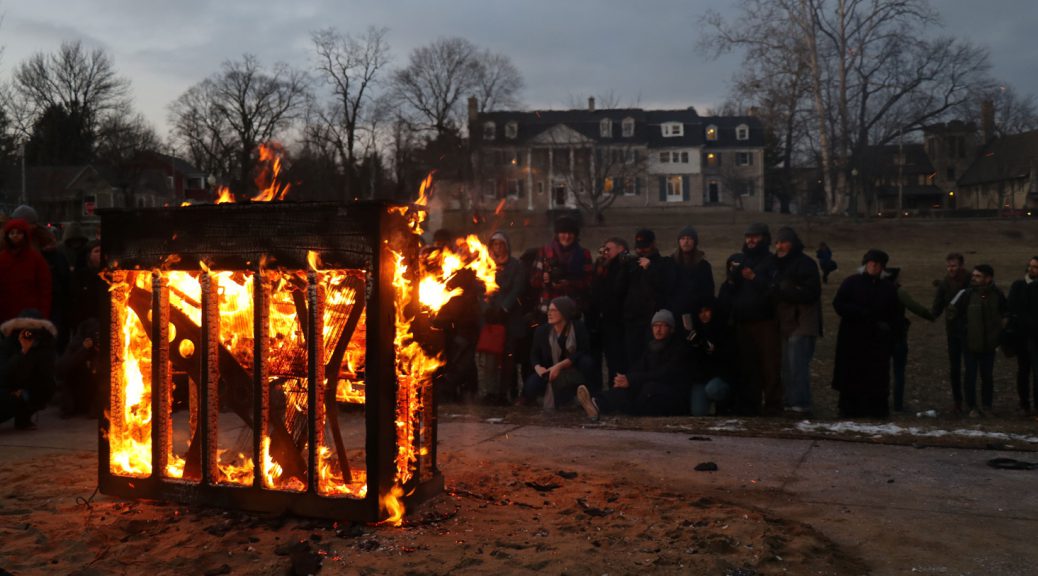
The Last Song
How do you properly celebrate the 50 year anniversary of the year 1968? Well, you set a piano on fire, of course — and on Wednesday, February 7th, 2018, composer Annea Lockwood did just that.
Wounded Galaxies: 1968 – Beneath the Paving Stones, the Beach is a six day festival celebrating the 50th anniversary of 1968, a year of great international political protest. Joan Hawkins, one of the organizers of the Wounded Galaxies series, says, “There were big changes in the arts, in the structure of the university system, in scholarship and research in general…we are trying to reevaluate and think about how we can maybe use some of those ideas going forward from this year”.
Annea Lockwood is a composer who visited Indiana University to recreate her 1968 performance Piano Burning as part of the festival. Lockwood says she originally burned a piano because she needed to record heat for a piece she was working on. “I tried lighting fires in my fireplace…made a bonfire in a courtyard…but none of it was satisfying. So, I figured, maybe I should burn something like a dead piano, which would make some amazing sounds…especially if I overstrung the strings and they popped” she commented.
The piano began the night being set up on pile of sand in Dunn Meadow. There was plenty of space around for spectators, as well as for all the camera and sound equipment that was set up. Equipment was needed in order to properly live stream the event into Franklin Hall’s common area, in case anyone watching got too cold outside. Before it was set on fire, various members of the audience played songs on the piano to help pass the time. The piano was chosen to be burned because there are parts that can no longer be repaired, so these were the last songs that it would ever play.
When a crowd had gathered and the sun had begun to set, Lockwood worked with a few other organizers to finally set the piano ablaze. They used lighter fluid and newspapers to get the fire going, and the performance of the night began; meanwhile, some brave performers stepped up to play some final notes on the now burning piano. The fast growing flames eventually forced them away.
As the night grew colder, those in the crowd either went inside to watch or huddled closer to the fire. After about two hours, Lockwood warned spectators to move away from the front of the piano because she believed it was going to fall forward. Soon after she gave this warning, the piano fell backwards in an explosion of sparks. What was once a tall, magnificent piano now laid in a smoldering heap on a bed of sand. This performance was a way for it to once again be appreciated as art.
After the fire had completely burned itself out, a reception was held in Franklin Hall. The organizers and remaining spectators enjoyed food and company while they rewatched the live stream of the night. Ross Martinie Eiler, a piano technician at Indiana University and one of the men who played the piano while it was on fire, obviously enjoyed the evening, stating, “Playing ‘Great Balls of Fire’ on a piano that’s actually on fire has been on my to do list, so, uh, check!”












